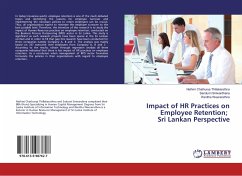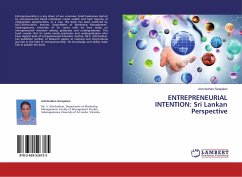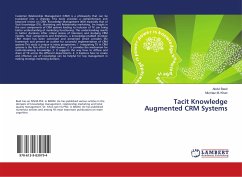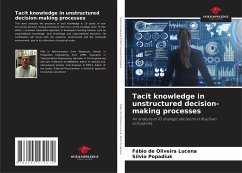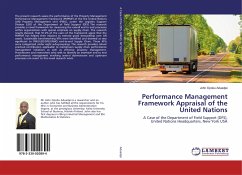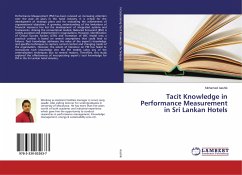
Tacit Knowledge in Performance Measurement in Sri Lankan Hotels
Versandkostenfrei!
Versandfertig in 6-10 Tagen
33,99 €
inkl. MwSt.

PAYBACK Punkte
17 °P sammeln!
Performance Measurement (PM) has been received an increasing attention over the past 20 years in the hotel industry. It is critical for the development of strategic plans and for evaluating the achievement of organisational objectives. A growing understanding of the limitations of financial measures has led the development of integrated systems and frameworks. Among the conventional models, Balanced Scorecard (BSC) is widely accepted and implemented in organisations. However, identification of Critical Success Factors (CSFs) and formation of BSC model into a practical context is based on sever...
Performance Measurement (PM) has been received an increasing attention over the past 20 years in the hotel industry. It is critical for the development of strategic plans and for evaluating the achievement of organisational objectives. A growing understanding of the limitations of financial measures has led the development of integrated systems and frameworks. Among the conventional models, Balanced Scorecard (BSC) is widely accepted and implemented in organisations. However, identification of Critical Success Factors (CSFs) and formation of BSC model into a practical context is based on several assumptions that could lead to failures. Tacit knowledge addresses the value of the expert's knowledge and specifies techniques to capture current context and changing needs of the organisation. However, the extent of literature on PM has failed to incorporate tacit knowledge into the PM models using any of the externalisation techniques due to several reasons. Therefore, this study explored the effectiveness of incorporating expert's tacit knowledge for PM in the Sri Lankan hotel industry.




